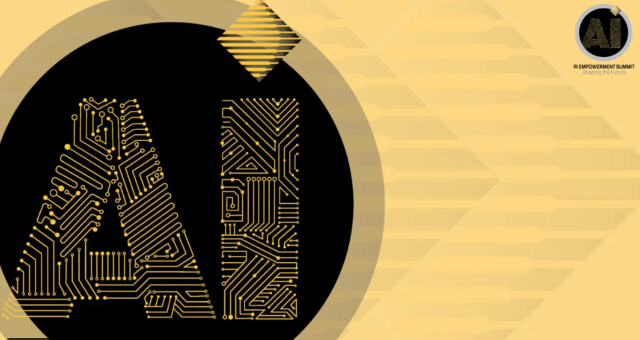
On May 8, 2025, University of Michigan’s artificial intelligence (AI) platform got a special mention during the U.S. Senate’s committee hearing on “Winning the AI Race: Strengthening U.S. Capabilities in Computing and Innovation.”
According to the testimony, the University of Michigan is the first in the world to provide generative AI tools for all its students to prepare them for the workforce of tomorrow. The university shared its pride in being among the best in terms of AI access and literacy on social media.
Witnesses at the U.S. Senate Commerce Committee hearing included Sam Altman, co-founder and CEO of OpenAI; Lisa Su, CEO and chair of Advanced Micro Devices (AMD); Michael Intrator, co-founder and CEO of CoreWeave; and Brad Smith, vice chair and president of Microsoft Corporation.These participants agreed on the transformative power of artificial intelligence (AI) and emphasized the need to address the potential risks associated with unchecked AI development.
The hearing highlighted the importance of strategic investments and establishing a regulatory framework to maintain the United States’ leadership in the AI sector.
In addition to advocating for AI regulation, the witnesses noted the necessity for robust infrastructure, including data centers and energy systems, to support advancements in AI.
The adoption of AI drives exponential increases in demand for computing power and energy.
The hearing also focused on the importance of investing in workforce training to prepare the American labor force for the evolving demands of the AI industry.
The testimonies underscored the critical role of government and private sector collaboration in navigating the challenges and opportunities presented by AI technologies.
Also on May 8, professional development company Career Communications Group sponsored the 2025 AI Empowerment Summit in partnership with Morgan State University.
In November 2024, Morgan State University participated in a groundbreaking report by a U.S. National Science Foundation-funded initiative, which outlined an ambitious pathway for the United States to lead in AI Engineering.
The report, titled AI Engineering | A Strategic Research Framework to Benefit Society, urges the engineering community to integrate AI with a strong focus on safety, ethics, and public welfare, ensuring that new advancements align with societal needs and values.
During the keynote speech at the 2025 AI Empowerment Summit, Lumena Energy CEO David N. Jones discussed how AI is transforming our lives.
As a member of the “liminal generation,” he perceives his role as a bridge between the analog past and the algorithmic future.
Jones emphasized that qualities such as judgment, ethics, taste, and original thinking will become increasingly rare as time becomes more abundant.
Therefore, the pivotal issue is not whether machines will surpass humans, but rather that those who utilize AI will outperform those who do not. This progress is about leveraging time-saving tools effectively, not just being smarter.
Alvin Toffler warned that success in the information age will not be defined by what we know, but by how quickly we can learn, unlearn, and relearn.
This insight is more relevant than ever, as AI and emerging technologies reshape the foundations of American society—education, labor, governance, and identity—in real time.
The decisions we make today, the projects we develop, the ethics we uphold, and the voices we amplify will have lasting impacts. AI is now woven into the fabric of daily life, embedded in our cars, homes, classrooms, and healthcare systems.
According to Toffler’s book, “The Third Wave,” humans live in a world governed by data, code, and consciousness. AI commoditizes time rather than talent.
It will not render skilled professionals obsolete; it enhances their capabilities, condensing work hours into seconds. For instance, a doctor using AI can make quicker diagnoses without sacrificing accuracy, while an engineer can create prototypes in minutes without losing insight.
Studies estimate that ChatGPT now reaches 500 million weekly users, growing rapidly by 25% since February 2025.
It’s projected that over a billion of the 9.2 billion people on Earth will interact with large language models—AI systems capable of understanding and generating human language.
These models are trained on extensive datasets of text and code, enabling them to perform a variety of natural language processing (NLP) tasks, such as text generation, translation, and question answering.
The question is no longer whether an AI revolution will occur, but how it will unfold. AI is progressing regardless of our input; if this is inevitable, shouldn’t we be involved in shaping its trajectory?
Data centers could consume 12% of U.S. electricity by 2028.
There are calls to train 500,000 skilled tradespeople to support America’s AI boom, accelerate the development of new data centers, and help manage rising energy prices, creating a robust ecosystem to scale AI training and usage.
Artificial intelligence (AI) is built on layers of algorithms, patterns, and probabilities, reflecting the data we provide and amplifying our priorities.
Whether we embrace AI’s excitement or acknowledge its risks, it represents more than just a chatbot in a browser; it serves as a quiet force behind many decisions, predictions, optimizations, and connections.
Today, @umich’s first-of-its-kind AI platform got a special mention during the U.S. Senate’s committee hearing on “Winning the AI Race: Strengthening U.S. Capabilities in Computing and Innovation.” We are PROUD to be #leadersandbest when it comes to AI access and literacy! #AI pic.twitter.com/WeJWXGjZ6F
— UMich ITS (@umichTECH) May 8, 2025
— BEYA STEM (@BlackEngineer) May 9, 2025
The U.S. Army Corps of Engineers has been tasked with…
Brown and Caldwell, a leading environmental engineering and construction firm,…
Humboldt State University, one of four campuses within the California…